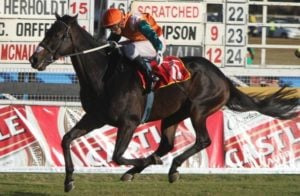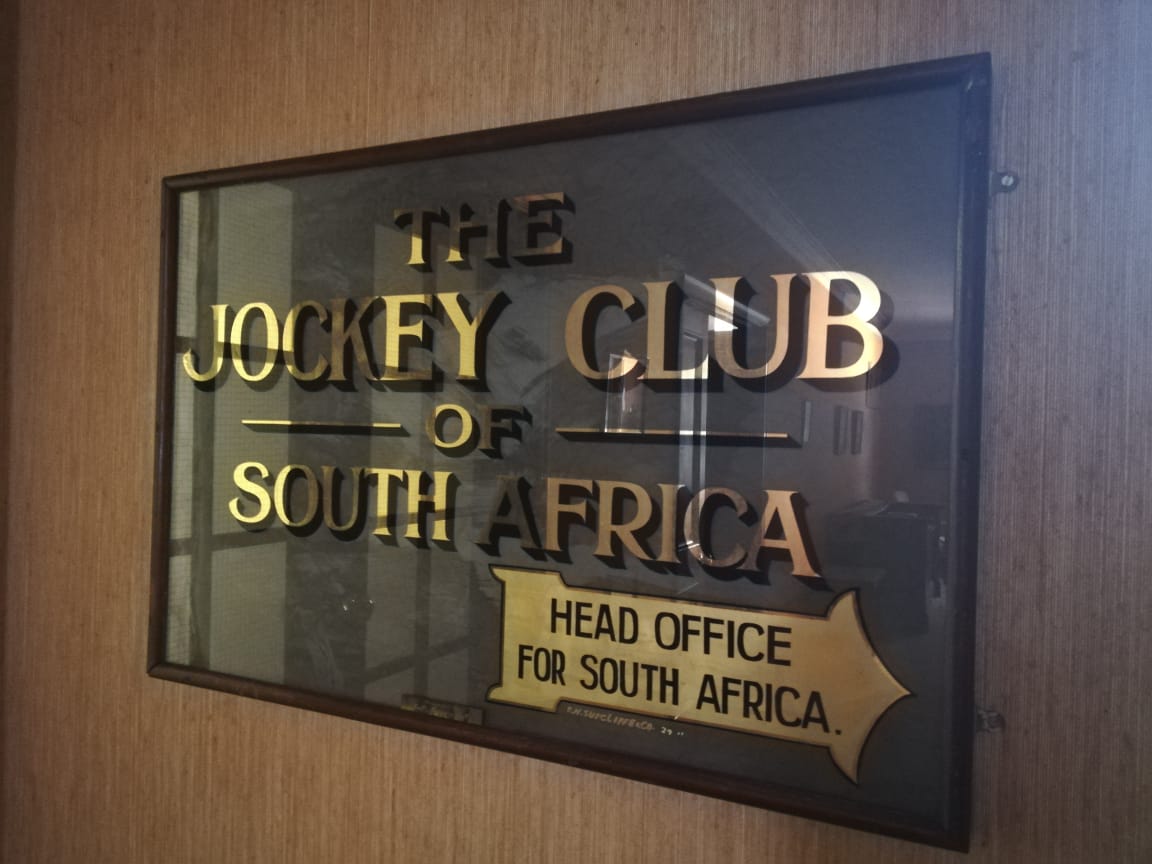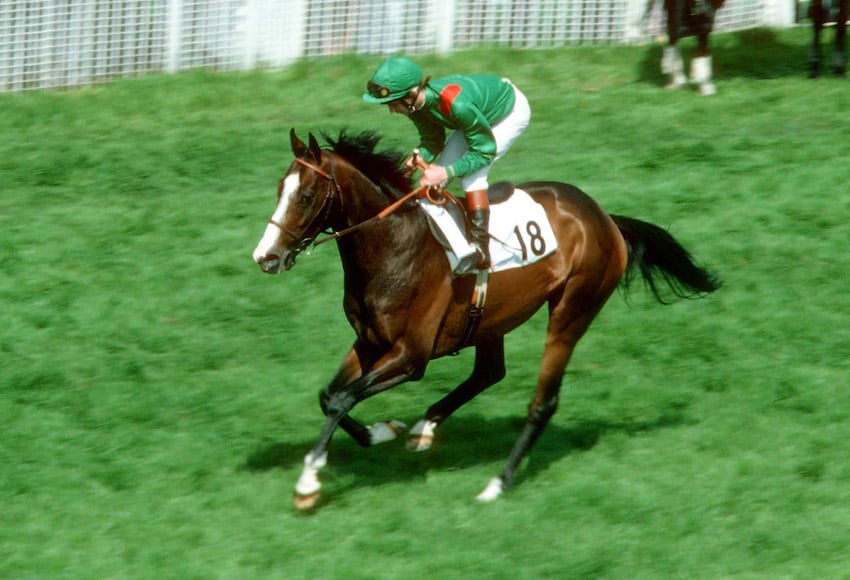
A King Is Born wins the Castle Tankard
KZN trainer Alyson Wright won Africa’s oldest sponsored race on Saturday when the Klawervlei Stud bred A King Is Born won the 51ST running of the US$50 000 Gr1 Castle Tankard at Borrowdale in Zimbabwe.
Ridden by Deon Sampson, the son of Second Empire hit the front early in the home straight and powered on to win readily.
After the dramatic late scratching of Pressure at the start, the fourteen horse field jumped on terms with Wittenberg showing the way. A King Is Born was settled about eight lengths back and relaxed nicely.
Captain’s Tiger went for a rails run as A King Is Born burst forward at the 300m marker
A King Is Born started at 15 to 1 and beat Ginepri, who made up plenty of ground in the straight, by four lengths in a time of 119,87 secs.
Captain’s Tiger stayed on for third three quarter lengths ahead of Alula Borealis.
The winner’s stablemate and weak 5 to 1 favourite Orbit War could only manage fifth.
The Klawervlei Stud bred A King Is Born was having his first run in Zimbabwe and has now won 5 of 26 starts. He is by Second Empire out of the Model Man mare, Child Model.
Colourful
The Castle Tankard has a colourful history.
In August 1959 the Owners & Trainers Association approached the Stewards of the Mashonaland Turf Club, suggesting the introduction of sponsored races.
Although this concept was flourishing in England, to date there had been no sponsored races in South Africa, or Rhodesia as it was then.
A certain Mr W Miller was tasked by the Board to investigate.
George Yeatman, an F.B.C Sporting Commentator became a leading enthusiast, and a Sponsored Races Sub Committee was formed, with each member being instructed to approach large commercial concerns. Progress was slow, so the Stewards decided to go without a sponsor, and put up £1500 stake for an Invitation Race over 6 furlongs.
The reason being that at that time, running in Rhodesia was an imported horse, My King, a son of English sprint sire King’s Bench, belonging to Bunty & Bill Wakefield.
This horse had being beating all before him, and in 1960, had won 7 of his 10 starts impressively. Nobody knew how good he was, because the then regulations of the Jockey Club Of South Africa prohibited imported horses from racing in South Africa, but there was nothing to stop a South African trained horse competing at Borrowdale Park.
International
To give the race international status, entries from Kenya were invited, with the Turf Club subsidizing the airfares. As a result two Kenyan runners were nominated.
From South Africa, came a nomination from Howard Ginsberg, the 8 year old Djask gelding, Riza, who was already the winner of 21 races including the Jhb Merchants Handicap (twice) and the Durban Stewards Cup. The presence of Riza scared off other entrants from South Africa, one telegraphic reply said “Unable to participate invitation race as have no animal which can compete with Riza weight for age basis”
Sponsor
In February 1960, the Rhodesian Breweries offered to sponsor the race, and the stake was increased to £2100 and thus on Easter Monday, the Castle Tankard was born under its first name, The Castle Brewery Invitation Stakes.
The Stewards decided to alter the conditions in 1961, to a weight for age race over a mile.
A bold move by the Stewards saw an increase in the stake to £4000 for 1962 and the race became a handicap over a mile.
Great efforts were made to attract entrants from South Africa; these were successful and seven of the eventual 14 starters came from over the Limpopo. The famous Oppenheimer silks graced the Rhodesian turf, as Royal Highway was installed favourite at 5/4 on, but he could only finish 3rd to Second Month.
It was decided to change the distance in 1963 to a mile and a quarter, the thinking behind this being that the major handicaps at the time in South Africa, the Durban July & Cape Metropolitan were over that trip.
Date
More changes were made in 1964. It was decided to try and fix a permanent date for the race at a time when the leading Johannesburg horses had not yet travelled to Durban for the winter season, and at a time on which the weather was unlikely to interfere with the success of the race, therefore the Saturday closest to May 1st annually was fixed, and to revert to a distance of one mile. This did the trick, and 19 horses accepted, 9 travelling from South Africa. The race proved a triumph for the SA contingent, as they filled the first 3 spots, the best a local runner could do was 4th.
Following on the heady success of 1964, no alterations to conditions were made. Slightly disappointing was that only 5 of the eleven nominations were South Africa. n Rose Knight beat Hay Trop, giving trainer Howard Ginsberg his second Tankard victory.
For some strange logic, believed to be because the Mashonaland Turf Club had recently commissioned a straight seven furlong course, the only one in Southern Africa at the time, it was decided to run the 1966 race over this trip. The decision did not have a very noticeable effect on runners, 13 lined up of which 5 were South African. This time the locals prevailed, and the previous year’s winner Rose Knight could only manage 4th place.
Following the 1966 race, the sponsors called a meeting to consider the future of the Castle Tankard, which had by now established itself as one of Southern Africa’s premier races.
They not only invited representatives of the Stewards, but also officials of the Turf Club and members of the sporting Press.
Classic Distance
There was unanimous agreement that it was high time a definite distance was fixed for this race. There was some discussion of what this distance should be, but after hearing various points of view it was decided to revert to the classic distance of ten furlongs. Two other very important decisions were also taken for 1967. It was decided to increase the stake money to £ 5000 and instead of an invitation race, to make it an open race for which anyone could enter. A large entry was received, few of whom were weighted out by the handicapper and eventually 18 horses faced the starter on the 29th April.
The Castle Tankard was now firmly established, not only on the local racing calendar but as an important feature in the South African annual programme. For many years it held its special slot in the calendar, early May, but in 1980 the running was scheduled for June. This was the year Rhodesia became Zimbabwe. For the past 15 years, Rhodesia had been a pariah state, fighting a bush war, placed under economic sanctions and probably, at best, an embarrassment to its Southern neighbour, and as a result fewer and fewer horses from south of the border were interested or prepared to make the trek to Rhodesia.
Probably still imprinted in memories was the ill fated trip of Bold Land (ARG), owned by Jean & Laurie Jaffee to compete in the J V Samuels sprint. The horse box missed the convoy, and the driver decided to go it alone with disastrous consequence. They were ambushed and shot at by guerillas just outside what was then Fort Victoria, the driver badly wounded and the horse in such a bad state he had to be put down.
In order to encourage bigger fields and level the playing field, the move to June allowed the 3 year olds to contest the Triple Crown, and still take part in the Tankard on favourable terms, should they so wish. And so, in 1986 local racegoers cheered the 3 year old Triple Crown winner, Matchwinner to victory in the Castle Tankard – the first three year old to win this race.
The Matchwinner victory had plenty of side stories. Armitage bred 8 Tankard winners and it is unlikely anyone will ever match this achievement. Peter Moor owned Matchwinner and shared honours in 1991, but is best known as the breeder of the mighty Ipi Tombe, and Sharon Paterson is the only lady trainer to train more than 2 Tankard winners.
The Tankard has moved its slot back to the time honoured tradition of May








